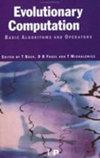BUSTLE: A Versatile Tool for the Evolutionary Learning of STL Specifications from Data
IF 3.4
2区 计算机科学
Q2 COMPUTER SCIENCE, ARTIFICIAL INTELLIGENCE
引用次数: 0
Abstract
Describing the properties of complex systems that evolve over time is a crucial requirement for monitoring and understanding them. Signal Temporal Logic (STL) is a framework that proved to be effective for this aim because it is expressive and allows state properties as human-readable formulae. Crafting STL formulae that fit a particular system is, however, a difficult task. For this reason, a few approaches have been proposed recently for the automatic learning of STL formulae starting from observations of the system. In this paper, we propose BUSTLE (Bi-level Universal STL Evolver), an approach based on evolutionary computation for learning STL formulae from data. BUSTLE advances the state of the art because it (i) applies to a broader class of problems, in terms of what is known about the state of the system during its observation, and (ii) generates both the structure and the values of the parameters of the formulae employing a bi-level search mechanism (global for the structure, local for the parameters). We consider two cases where (a) observations of the system in both anomalous and regular state are available, or (b) only observations of regular state are available. We experimentally evaluate BUSTLE on problem instances corresponding to the two cases and compare it against previous approaches. We show that the evolved STL formulae are effective and human-readable: the versatility of BUSTLE does not come at the cost of lower effectiveness.BUSTLE:从数据中进化学习 STL 规格的多功能工具。
描述随时间演变的复杂系统的属性是监测和理解这些系统的关键要求。信号时态逻辑(STL)是一个被证明能有效实现这一目标的框架,因为它具有很强的表现力,能将状态属性描述为人类可读的公式。然而,如何设计出适合特定系统的 STL 公式是一项艰巨的任务。因此,最近有人提出了一些从系统观测结果出发自动学习 STL 公式的方法。在本文中,我们提出了 BUSTLE(双级通用 STL 进化器),这是一种基于进化计算的方法,用于从数据中学习 STL 公式。BUSTLE 超越了最先进的技术水平,因为它(i)适用于更广泛的问题类别,即在观测过程中已知的系统状态;(ii)采用双层搜索机制(结构为全局搜索,参数为局部搜索)生成公式的结构和参数值。我们考虑了两种情况:(a) 可同时观测到系统的异常状态和正常状态,或 (b) 只能观测到正常状态。我们在对应这两种情况的问题实例上对 BUSTLE 进行了实验评估,并与之前的方法进行了比较。结果表明,演化出的 STL 公式既有效又便于人类阅读:BUSTLE 的多功能性并没有以降低有效性为代价。
本文章由计算机程序翻译,如有差异,请以英文原文为准。
求助全文
约1分钟内获得全文
求助全文
来源期刊

Evolutionary Computation
工程技术-计算机:理论方法
CiteScore
6.40
自引率
1.50%
发文量
20
审稿时长
3 months
期刊介绍:
Evolutionary Computation is a leading journal in its field. It provides an international forum for facilitating and enhancing the exchange of information among researchers involved in both the theoretical and practical aspects of computational systems drawing their inspiration from nature, with particular emphasis on evolutionary models of computation such as genetic algorithms, evolutionary strategies, classifier systems, evolutionary programming, and genetic programming. It welcomes articles from related fields such as swarm intelligence (e.g. Ant Colony Optimization and Particle Swarm Optimization), and other nature-inspired computation paradigms (e.g. Artificial Immune Systems). As well as publishing articles describing theoretical and/or experimental work, the journal also welcomes application-focused papers describing breakthrough results in an application domain or methodological papers where the specificities of the real-world problem led to significant algorithmic improvements that could possibly be generalized to other areas.
 求助内容:
求助内容: 应助结果提醒方式:
应助结果提醒方式:


